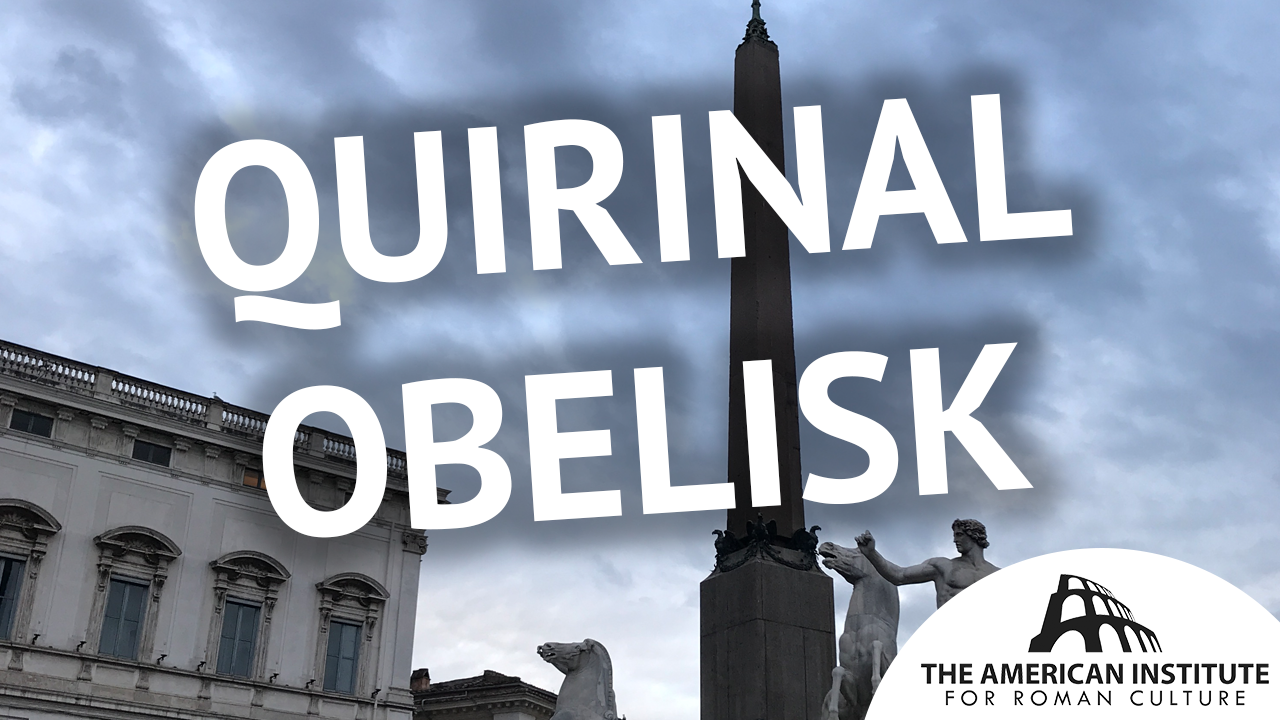Start with our video overview:
The Quirinal obelisk is one of the many obelisks that the Romans transported to Rome, subsequently repurposed in the papal period in a new location. Specifically, the Quirinal obelisk is one of two obelisks brought from Egypt, designated to flank the entrance of the Mausoleum of Augustus. This one was brought here and erected by Pope Pius VI in 1786. The other one was moved to Santa Maria Maggiore.
Two obelisks that stood in front of the mausoleum of Augustus in the campus Martius (Amm. Marcell. xvii. 4. 16; Not. Brev.). As they are not mentioned by Pliny (NH xxxvi. 69-73) nor by Strabo in his description of the mausoleum (v. 3. 8), they probably were not brought from Egypt before the time of Domitian. One of these obelisks, which are a little over 14 metres high, was excavated before 1527 behind the church of S. Rocco 1 and set up behind S. Maria Maggiore in 1587; the other was found at the same time, but was not excavated till a little before 1550 (compare Fulvio, Antiquitates Urbis lxxi’, with Aldrovandi, Statue di Roma 314; cf. LS ii. 15), and was not moved until 1782, when Pius VI placed it in the Piazza del Quirinale (LS iv. 152; BC 1914, 382). They are without hieroglyphics (BC 1897, 223-225=Ob. Eg. 147-149).
Explore further:
This content is brought to you by The American Institute for Roman Culture, a 501(C)3 US Non-Profit Organization.
Please support our mission to aid learning and understanding of ancient Rome through free-to-access content by donating today.
Cite This Page
Cite this page as: Darius Arya, The American Institute for Roman Culture, “Quirinal Obelisk” Ancient Rome Live. Last modified 07/10/2020. https://ancientromelive.org/quirinal-obelisk/
License
Created by The American Institute of Roman Culture, published on 12/29/2019 under the following license: Creative Commons: Attribution-NonCommercial-ShareAlike. This license lets others remix, tweak, and build upon this content non-commercially, as long as they credit the author and license their new creations under the identical terms. Please note that content linked from this page may have different licensing terms.



